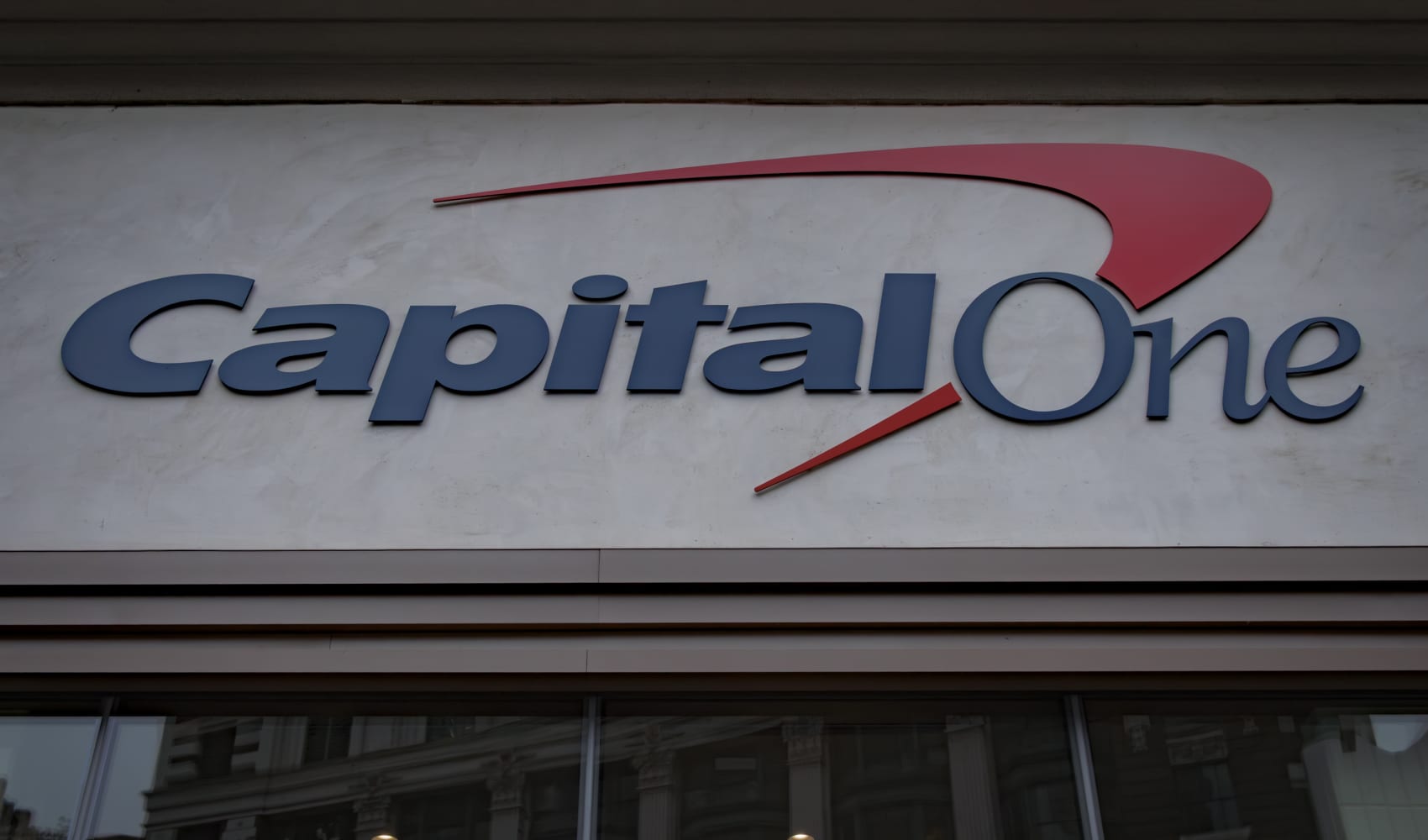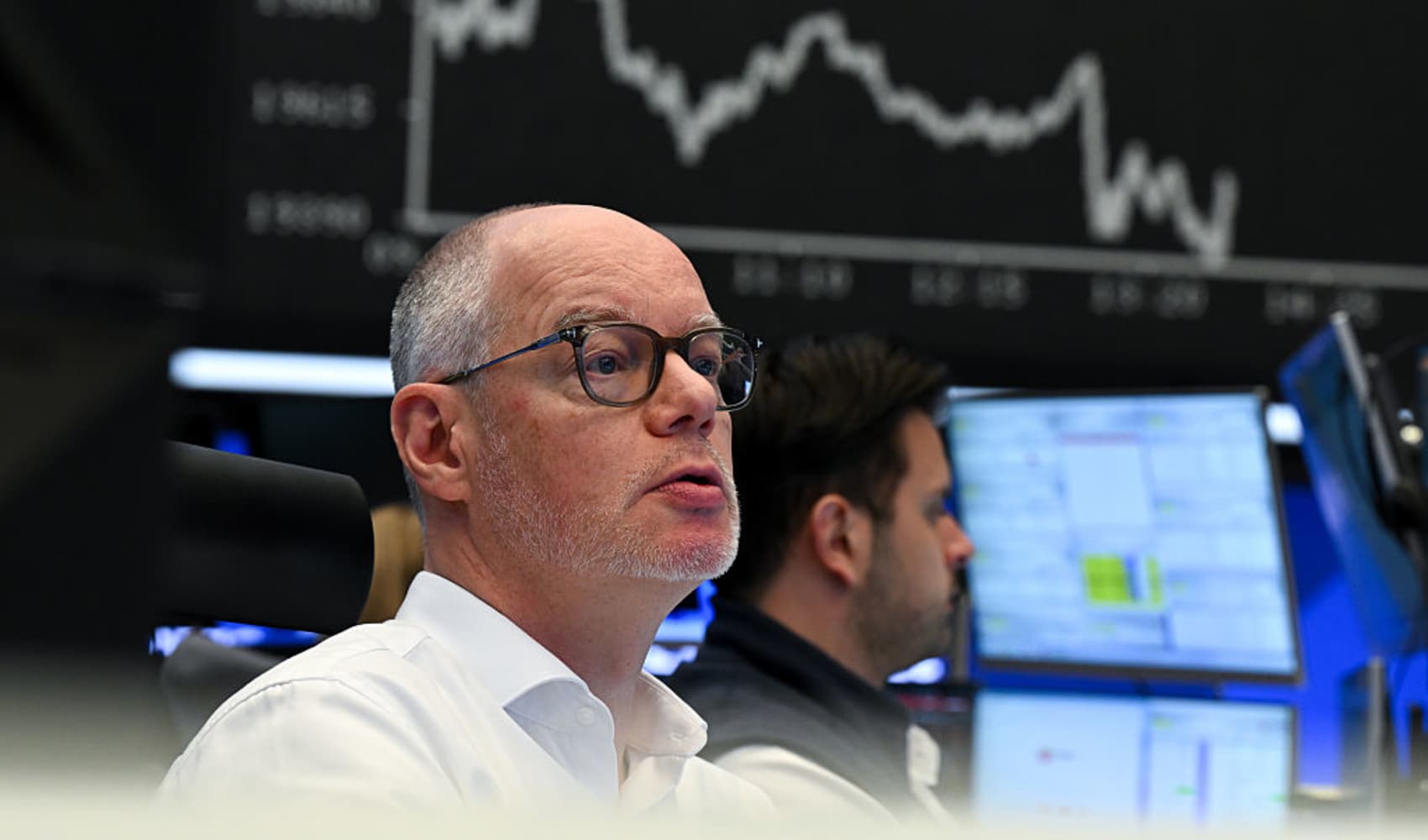Capital One & Discover Merger: What it Means for You
Capital One and Discover: A Credit Card Colossus is Born?
Introduction: The Financial Landscape Shifts
Hold on to your hats, folks! The world of credit cards is about to get a whole lot more interesting. Capital One's monumental bid to acquire Discover Financial Services has been given the green light by the Federal Reserve and the Office of the Comptroller of the Currency. We're talking about a $35.3 billion all-stock deal, a financial behemoth in the making. What does this mean for you, the everyday consumer? Well, let's dive in and unpack this game-changing merger.
The Green Light: Regulators Approve the Deal
Friday brought significant news: the regulatory hurdles have been cleared! Both the Federal Reserve and the Office of the Comptroller of the Currency have signed off on Capital One's application. This is a crucial step, signifying that the merger aligns with regulatory requirements and doesn't pose undue risks to the financial system.
The $35.3 Billion Question: What's in it for Capital One?
Why would Capital One shell out such a massive sum? It's not just about owning another credit card company. It's about market share, technological infrastructure, and a whole lot more. Think of it like this: Capital One is acquiring not just Discover's existing customer base, but also Discover's payment network, a direct competitor to giants like Visa and Mastercard.
Becoming a Payment Network Player
Discover owns and operates its own payment network, meaning transactions can be routed directly through Discover's systems. This bypasses the fees associated with Visa and Mastercard, potentially saving Capital One a significant amount of money in the long run. This also gives Capital One greater control over the payment ecosystem.
Discover Bank: A Quiet Powerhouse
The deal also indirectly acquires Discover Bank. This is a significant asset, providing Capital One with a robust deposit base and further expanding its financial reach. Think of it as adding a powerful engine to an already impressive machine.
Consumer Impact: Will Your Rewards Get Better or Worse?
Now, for the burning question: how does this affect you, the credit card user? Will your rewards programs get sweeter? Will interest rates plummet? The answer, unfortunately, isn't straightforward. While Capital One might tout benefits stemming from increased scale and efficiency, there's also the potential for changes to reward structures and interest rates. We'll need to wait and see how Capital One chooses to integrate Discover's existing offerings.
The Potential for Enhanced Rewards
On the upside, the combined entity might be able to negotiate better deals with merchants, leading to enhanced rewards for consumers. Imagine earning even more cashback or travel points on your everyday purchases! That's the best-case scenario, and we're all hoping for it.
Competitive Landscape: A New Era of Credit Cards
The merger will undoubtedly reshape the competitive landscape of the credit card industry. With a larger market share, Capital One will become an even more formidable competitor to industry titans like JPMorgan Chase and American Express. This increased competition *could* lead to more innovative products and services, ultimately benefiting consumers.
The Regulatory Scrutiny: Why the Approval?
The Federal Reserve and the Office of the Comptroller of the Currency didn't just rubber-stamp this deal. They meticulously scrutinized the application, evaluating various factors, including the financial stability of the combined entity, the potential impact on competition, and the convenience and needs of the communities served. Their approval suggests they believe the merger is, on balance, in the public interest.
Statutory Factors Considered
The regulators specifically considered factors like the financial and managerial resources of both companies. They also assessed the "convenience and needs" of the communities served by the combined organization. This focus on community needs suggests that regulators are paying close attention to ensuring that the merger benefits, rather than harms, consumers and local economies.
Antitrust Concerns: Are There Too Few Players?
One of the biggest concerns surrounding any large merger is the potential for reduced competition. Will this merger concentrate too much power in the hands of Capital One? Will it stifle innovation and lead to higher prices? These are valid questions that antitrust regulators likely considered during their review.
The Integration Process: A Complex Undertaking
Integrating two large financial institutions is a herculean task. It involves merging different technologies, cultures, and customer service systems. A smooth integration is crucial for realizing the potential benefits of the merger and avoiding disruptions for customers.
Technology Challenges
Migrating millions of customer accounts to a unified platform is a complex technical challenge. Ensuring data security and maintaining seamless service during the transition are paramount.
Financial Stability: A Fortress Balance Sheet?
Regulators also assessed the financial strength of the combined entity. They wanted to ensure that the merger wouldn't jeopardize the stability of the financial system. A stronger, more diversified Capital One could potentially be more resilient to economic shocks.
Future Outlook: What Lies Ahead?
The Capital One and Discover merger marks a significant shift in the credit card industry. It's a bold move that could reshape the competitive landscape and potentially impact millions of consumers. While the long-term consequences remain to be seen, one thing is certain: the world of credit cards is about to get a whole lot more interesting. Keep an eye on your mailboxes and email inboxes for updates from Capital One and Discover regarding your accounts!
Potential Downsides: Risks to Consider
While there are potential upsides, it's crucial to acknowledge potential downsides. For example, some argue that fewer competitors could lead to decreased innovation in the long run. Others worry about job losses as the two companies consolidate operations. These are legitimate concerns that should be closely monitored.
Conclusion: The Dawn of a New Credit Card Era
The Federal Reserve and OCC approval of the Capital One-Discover merger signifies a seismic shift in the financial landscape. This $35.3 billion all-stock deal not only consolidates two major players but also propels Capital One into direct competition with payment giants Visa and Mastercard. While potential benefits like enhanced rewards and increased innovation exist, it's essential to remain vigilant about potential downsides, such as reduced competition and job losses. Ultimately, the coming years will reveal the true impact of this merger on consumers and the broader credit card industry. The key takeaway is that the credit card market is evolving, and consumers should stay informed to make the best financial decisions.
Frequently Asked Questions (FAQs)
- Q: What happens to my Discover card if I don't want to be with Capital One?
A: While the full details of the integration are still being worked out, it's likely that Discover cardholders will eventually be transitioned to Capital One products. If you're unhappy with the changes, you may be able to close your account and switch to a different card issuer. Keep an eye out for communications from Discover and Capital One regarding your options. - Q: Will the interest rates on my Discover card change after the merger?
A: It's possible. Capital One may adjust interest rates as part of the integration process. However, they are legally required to provide you with advance notice of any changes to your account terms. Be sure to read any notifications carefully. - Q: Will I still be able to use my Discover card at the same places after the merger?
A: Yes, you should still be able to use your Discover card at the same merchants that currently accept it. Discover's payment network is widely accepted, and Capital One will likely want to maintain that level of acceptance. - Q: When will the merger be officially completed?
A: Now that regulatory approval has been granted, the merger is expected to close in late 2024 or early 2025, subject to the satisfaction of customary closing conditions. The integration process will likely take several months or even years after the deal closes. - Q: How will this merger affect my credit score?
A: The merger itself should not directly affect your credit score. However, any changes to your account terms, such as credit limits or interest rates, could indirectly impact your score. Responsible credit card use, such as making timely payments and keeping your credit utilization low, remains the best way to maintain a healthy credit score.

